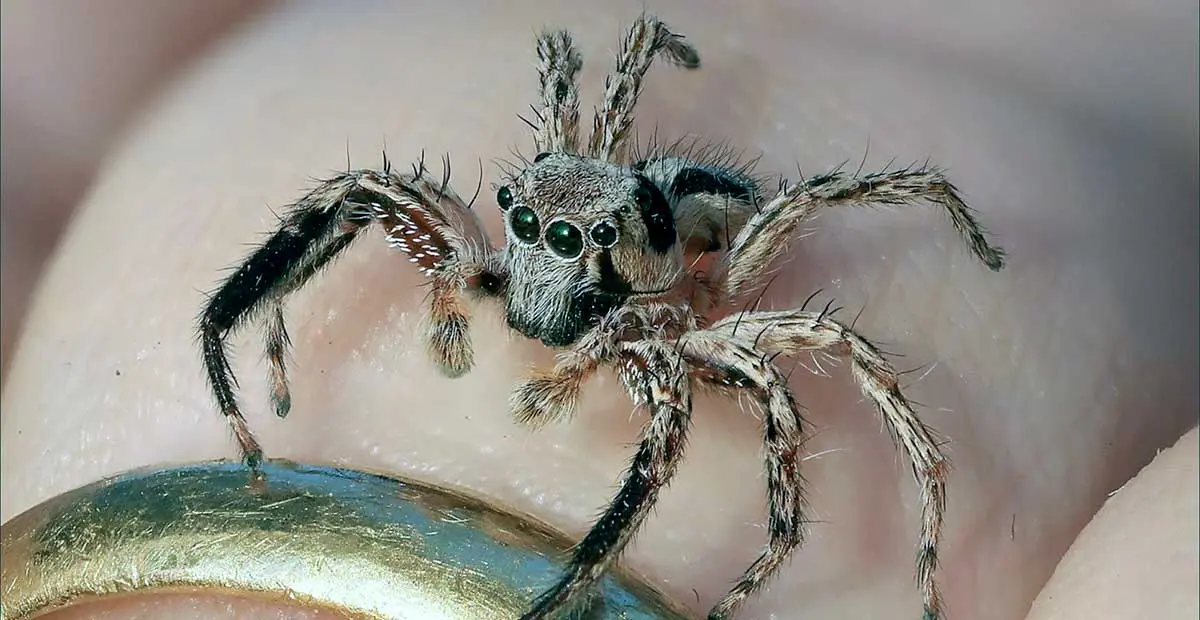Ever wondered just how smart spiders are? These tiny creatures with eight legs are way more intelligent than you might think. They’re not just mindless crawlers waiting to spin webs and catch flies. Spiders are problem solvers, engineers, and even strategists in their own right. If you’ve ever been creeped out by them, maybe it’s time to give them a little credit for their brainpower.
When we talk about spiders, the first thing that comes to mind is their creepy appearance and knack for building intricate webs. But there’s so much more to these creatures than meets the eye. Scientists have been studying spider behavior for years, and the results are mind-blowing. Did you know some spiders can learn, adapt, and even outsmart their prey? Yeah, they’re basically the Einsteins of the insect world.
So, why should you care about spider intelligence? Well, understanding these creatures not only gives us a deeper appreciation for nature but also helps us learn from their survival strategies. Who knows? Maybe we can even borrow a few tricks from them to solve our own problems. Let’s dive into the fascinating world of spiders and uncover just how smart they really are.
Read also:Beyonceacute Kids The Untold Story Of Queen Beys Little Royalties
Daftar Isi
- Introduction to Spider Intelligence
- Biological Background of Spiders
- Web Building: The Art of Engineering
- The Learning Ability of Spiders
- Problem Solving in the Spider World
- Communication Among Spiders
- Debunking Common Myths About Spiders
- Evolutionary Insights into Spider Intelligence
- Human Impact on Spider Intelligence
- Conclusion: Why Spiders Matter
Introduction to Spider Intelligence
Spiders often get a bad rap. People see them as creepy, scary, or just plain annoying. But beneath that exoskeleton lies a brain that’s surprisingly advanced. Scientists have discovered that spiders are capable of complex behaviors, from building intricate webs to using tools. These eight-legged wonders are not just about instinct; they also rely on intelligence to survive in the wild.
One of the most fascinating aspects of spider intelligence is their ability to adapt. Whether it’s changing their web design based on the environment or learning from past experiences, spiders prove that they’re more than just simple creatures. In fact, some species have even been observed teaching others, showing a level of social intelligence that rivals some mammals.
What Makes Spiders So Smart?
Spider intelligence isn’t just about brains. It’s about how they use their senses, instincts, and environment to thrive. For example, some spiders can detect vibrations in their webs to identify prey, while others use their keen eyesight to hunt. This combination of sensory awareness and cognitive ability makes them one of the most fascinating creatures on the planet.
Biological Background of Spiders
To truly understand spider intelligence, we need to take a step back and look at their biology. Spiders belong to the class Arachnida, which includes over 45,000 species. Despite their diversity, all spiders share some common traits, such as their eight legs and ability to produce silk. But did you know that not all spiders build webs? Some are hunters, while others are ambush predators.
Spiders also have a unique nervous system that allows them to process information quickly. Their brains may be tiny, but they’re highly efficient. For instance, jumping spiders have been shown to have excellent vision and memory, allowing them to track prey and remember locations. This biological advantage gives them an edge in the wild.
Key Features of Spider Biology
- Eight legs for enhanced mobility
- Silk-producing glands for web building
- Highly sensitive sensory organs
- Compact but powerful nervous system
Web Building: The Art of Engineering
When it comes to web building, spiders are true architects. They use silk, a material stronger than steel, to create intricate structures that serve various purposes. Some webs are designed to catch flying insects, while others act as shelters or even communication tools. But how do spiders know how to build such complex structures?
Read also:How Old Is Kylie Jenner Discovering The Truth Behind The Lip Kit Empire
It turns out that web building is a combination of instinct and experience. Young spiders are born with the ability to spin basic webs, but as they grow, they refine their skills through trial and error. Some species even modify their web designs based on environmental factors, such as wind patterns or prey availability. It’s like they’re constantly upgrading their architecture to suit their needs.
Types of Spider Webs
- Orb webs: Circular webs used for catching flying insects
- Tangle webs: Irregular webs used for trapping crawling prey
- Funnel webs: Shelters with a trapdoor entrance
The Learning Ability of Spiders
Contrary to popular belief, spiders aren’t just creatures of habit. They’re capable of learning and adapting to new situations. For example, some spiders have been observed changing their hunting strategies based on the behavior of their prey. This ability to learn is a sign of intelligence and shows that spiders are not just driven by instinct.
One study found that jumping spiders can remember the location of prey even after being distracted. This suggests that they have a form of short-term memory, which is quite advanced for an invertebrate. Another study showed that spiders can learn to associate certain stimuli with food, much like Pavlov’s dogs. These findings challenge the notion that spiders are simple creatures.
How Spiders Learn
- Through trial and error
- By observing their environment
- Through social interaction (in some species)
Problem Solving in the Spider World
Problem-solving is another area where spiders shine. Whether it’s finding the best spot to build a web or escaping from predators, spiders are excellent at thinking on their feet. For example, some spiders have been observed using tools to catch prey. One species of spider in South America uses leaves to create a decoy, luring unsuspecting insects into its web.
Another example of spider problem-solving is their ability to navigate complex environments. Some species can find their way back to their webs even after being moved several meters away. This shows that they have a strong sense of direction and spatial awareness, which is crucial for survival in the wild.
Communication Among Spiders
Communication is not something you’d typically associate with spiders, but some species have developed unique ways of interacting with each other. For instance, male spiders often perform elaborate courtship rituals to attract mates. These rituals can involve vibrations, movements, or even gifts of food. It’s like they’re putting on a show to impress the ladies.
Spiders also use vibrations to communicate with each other. When a spider detects a vibration in its web, it can determine whether it’s a potential mate, prey, or predator. This ability to interpret vibrations is crucial for their survival, as it allows them to respond quickly to different situations.
Ways Spiders Communicate
- Vibrations in webs
- Courtship rituals
- Chemical signals (pheromones)
Debunking Common Myths About Spiders
There are plenty of myths surrounding spiders, and many of them paint them in a negative light. For example, some people believe that all spiders are dangerous, but the truth is that most species are harmless to humans. Others think that spiders are blind, but many species have excellent vision, especially jumping spiders.
Another common myth is that spiders are insects. In reality, spiders belong to a different class altogether, Arachnida, which also includes scorpions and ticks. Understanding these facts can help us appreciate spiders for what they are: fascinating creatures with incredible abilities.
Evolutionary Insights into Spider Intelligence
Spider intelligence didn’t happen overnight. It’s the result of millions of years of evolution, where only the smartest and most adaptable spiders survived. This process of natural selection has led to the diverse range of behaviors we see in spiders today. From web building to problem-solving, each trait has evolved to give spiders an edge in the wild.
Studying spider intelligence can also give us insights into the evolution of intelligence in other animals. By understanding how spiders learn and adapt, we can gain a better understanding of how intelligence develops in nature. Who knows? Maybe one day we’ll discover that spiders are even smarter than we think.
Human Impact on Spider Intelligence
As humans continue to impact the environment, spiders are also feeling the effects. Urbanization, pollution, and climate change are all factors that can influence spider behavior and intelligence. For example, some studies have shown that spiders in urban areas tend to build larger webs and have higher reproductive success than their rural counterparts. This suggests that spiders are capable of adapting to new environments, but at what cost?
On the flip side, human activities can also threaten spider populations. Pesticides, habitat destruction, and climate change can all have negative effects on spider populations. By protecting these creatures, we’re not only preserving biodiversity but also ensuring that we continue to learn from them.
Conclusion: Why Spiders Matter
So, how smart are spiders? The answer is: way smarter than you might think. From building intricate webs to solving complex problems, spiders are true masters of survival. By studying spider intelligence, we can gain a deeper appreciation for the natural world and even learn a thing or two about how to adapt and thrive in our own lives.
Next time you see a spider, take a moment to appreciate its intelligence and abilities. And if you’re feeling adventurous, try observing its behavior. You might be surprised by what you discover. Remember, spiders are not just creepy crawlies; they’re fascinating creatures with a lot to teach us. So, let’s give them the credit they deserve and marvel at their incredible intelligence.
Don’t forget to leave a comment or share this article with your friends. Let’s spread the word about spider intelligence and help people see these creatures in a new light. Who knows? You might just convert a few spider haters into spider lovers!


